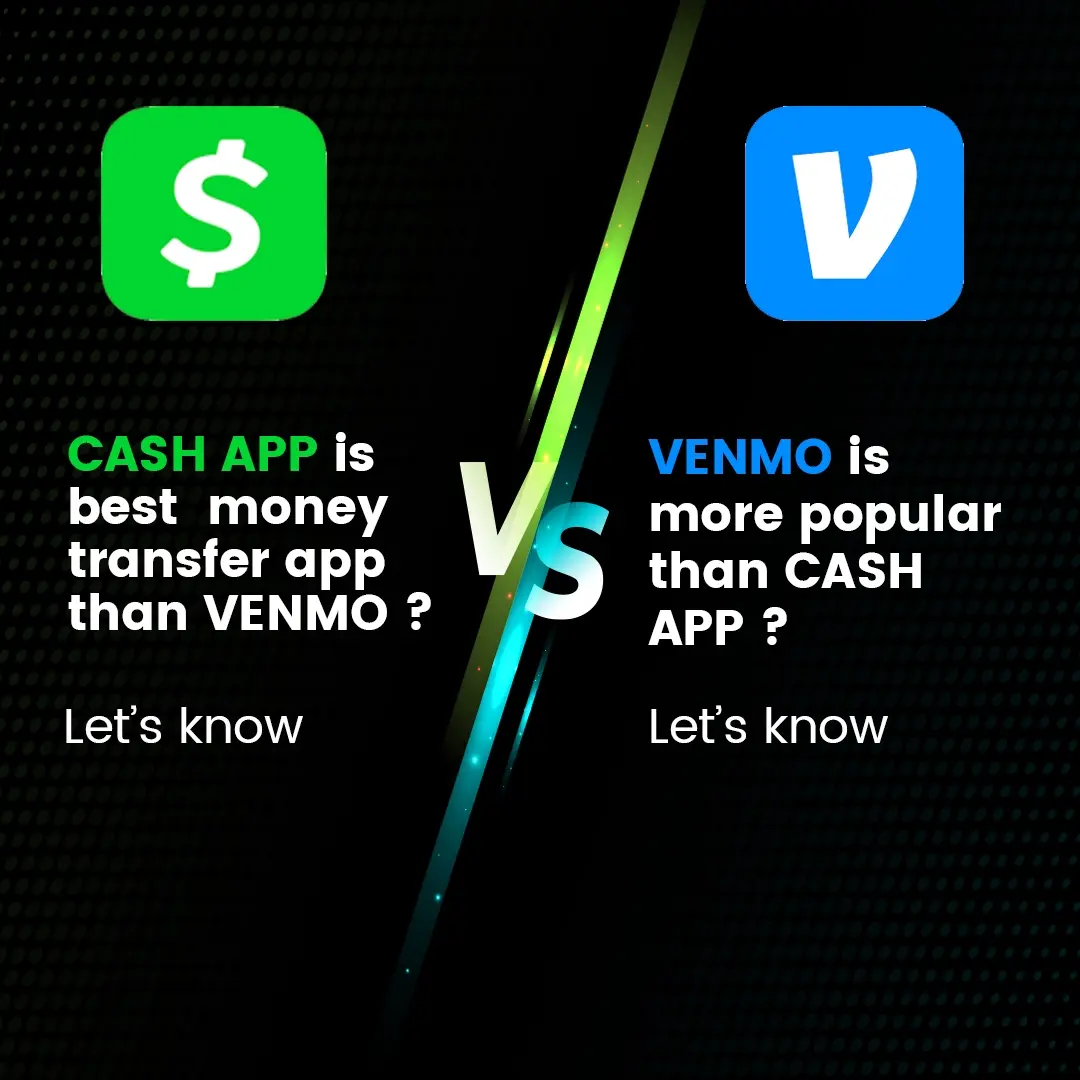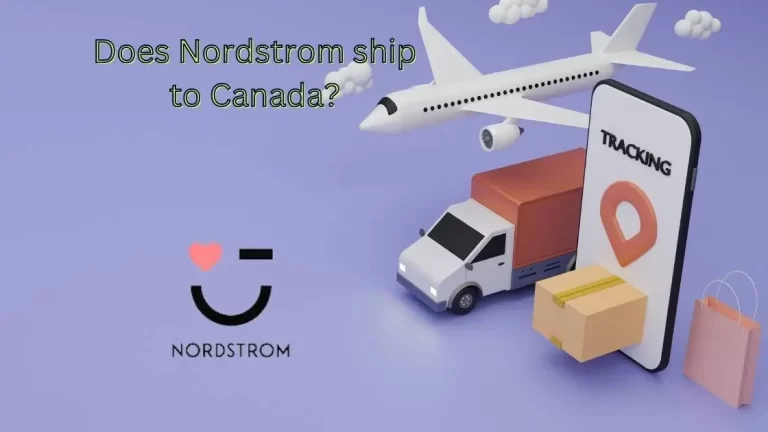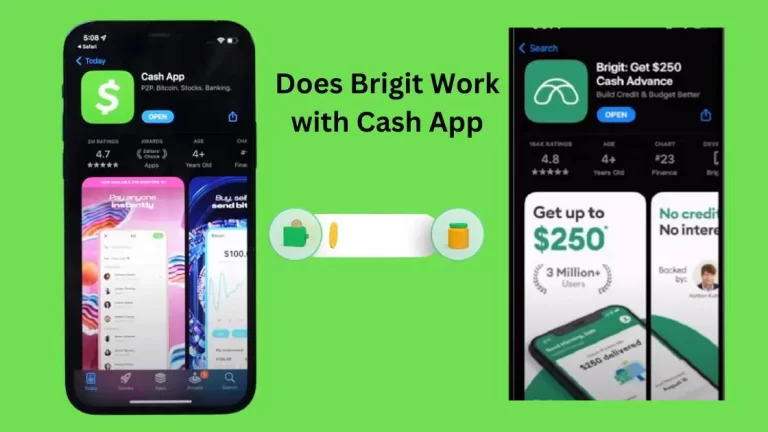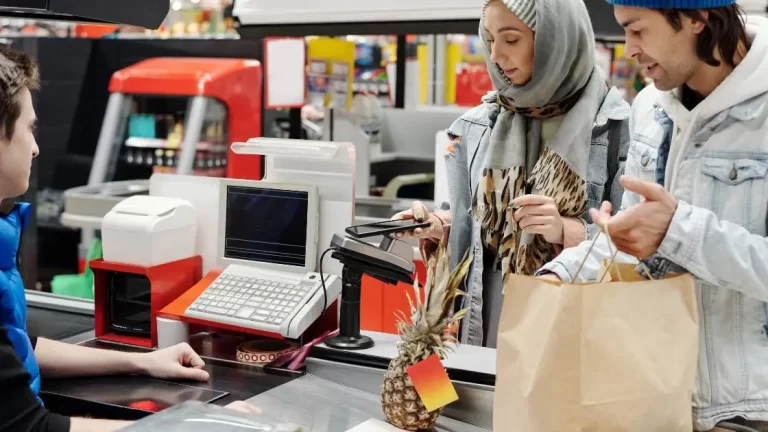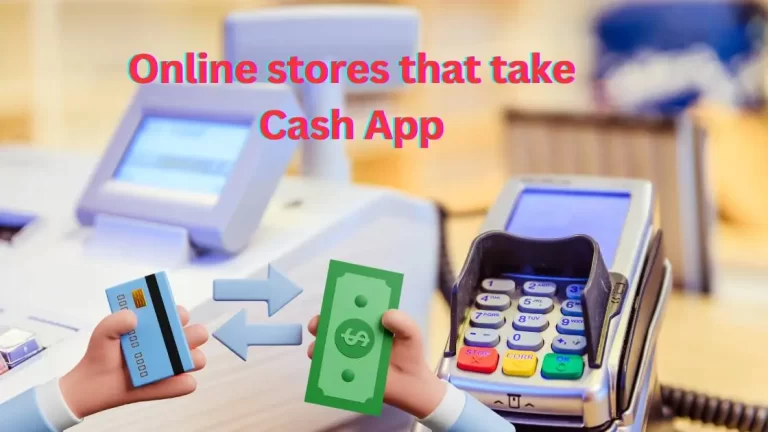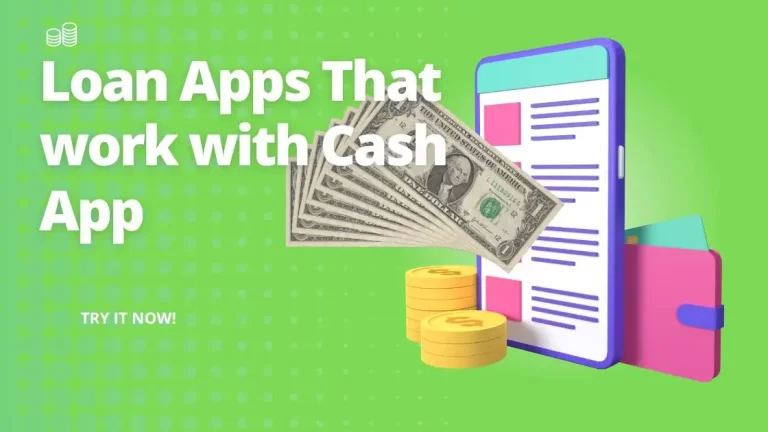CASH APP VS VENMO| Which is the Best?
Using Cash App or Venmo P2P money transfer app, you may send and receive money on your smartphone to your friends or wherever you want.
Due to the similarities in the services the two programs offer, they initially seem to be identical. Each has pros and cons and unique qualities. Continue reading to find out more about Cash App vs. Venmo and how they contrast.
Which is Safer? Cash App or Venmo?
In the US, apps for digital money like Cash App and Venmo are both classified as
Money Transfer Services. To safeguard your money and data, both use two-factor authentication and strong encryption. Both companies have a young history, but tens of millions of US customers trust them.
Read More:
- How to make a new Venmo account with the same number?
- Can you see who views your Venmo? {Everything Explained}
- How to Get Free Money on Venmo? Here are Tips and Tricks
- How to Delete Venmo Transaction History| Here is How!
Cash App offers more financial functionality than Venmo, even though neither platform has the legal standing of a bank with an active license.
After you authenticate your Cash App account, you will receive a routing number and checking account numbers to retain cash balances with your bank partners.
The FDIC will provide coverage for eligible Cash App accounts up to $250,000 per client.
Cash App allows you to trade stocks on the stock market. They can get brokerage services from FINRA- and SIPC-member Cash App Investing LLC.
Investors should be aware of potential loss and risk. The FDIC does not provide safety for investment balances.
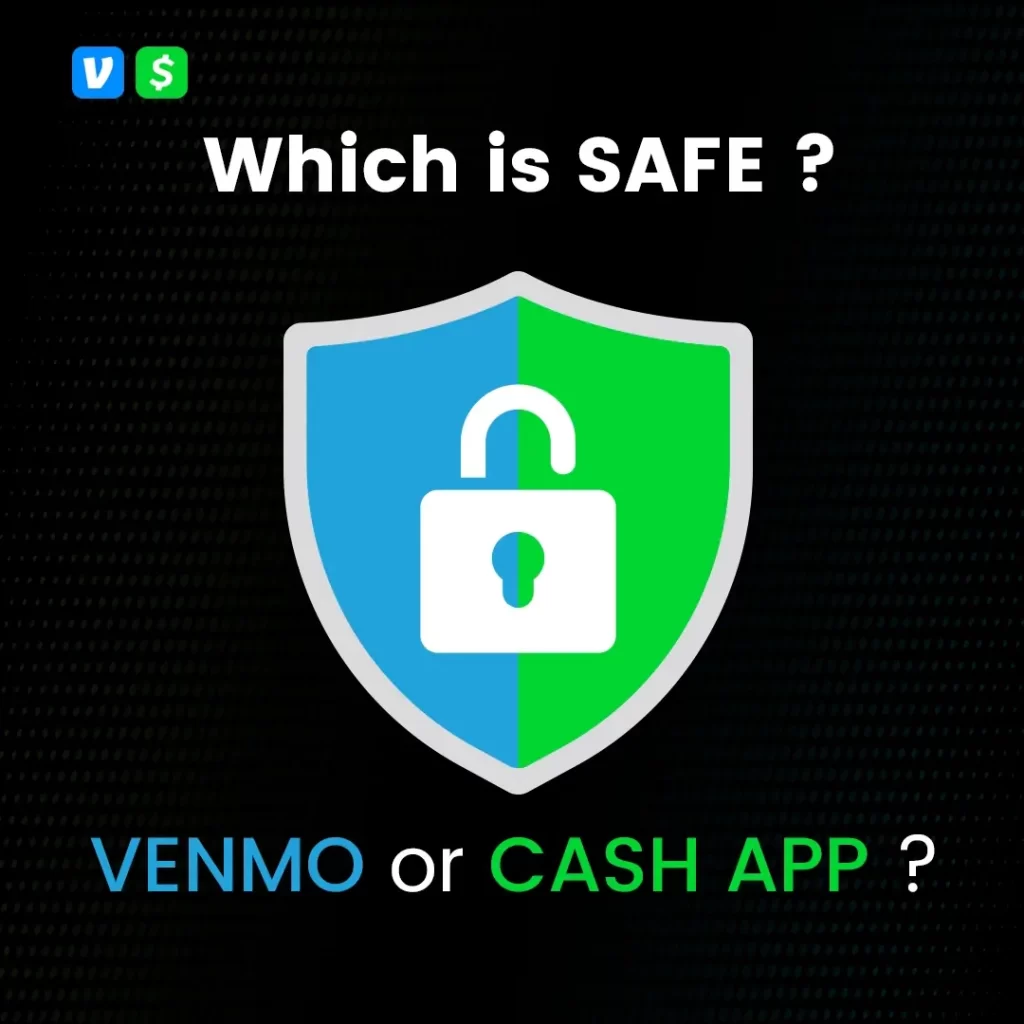
Venmo: Is it safe?
Venmo’s stringent safety mechanisms ensure the safety of your financial transactions and personal information.
If you want the security of FDIC insurance on your Venmo money, though, you should probably transfer it to a bank account through Direct Deposit or the cash-a-check feature. If so, a partner bank will hold your funds.
Both apps allow you to buy bitcoins. Cryptocurrency holdings are not FDIC-insured.
CASH APP VS VENMO| Which Has Cheaper Fees, Cash App, or Venmo?
Downloading Cash App and Venmo is free, and neither service charges any account opening or ongoing fees. Sending and receiving money from a linked bank account, debit card, or other user is entirely free.
ATM Withdrawal Charges
Cash App charges $2.00 for each ATM withdrawal made using its debit card, although it waives these costs for qualified users. You must receive $300 or more in app-based direct transfers each month to be eligible.
When using its debit card to make an ATM withdrawal, Venmo costs $2.50.
However, MoneyPass ATMs in the US accept the Venmo debit card for free withdrawals. This ATM locator can be used to locate MoneyPass ATMs.
Fees for Credit Card Transfers
You can connect your payment card information to your account in both apps. With the associated credit card, you can send money or make payments, although both services have fees. CashApp: 3% Venmo: 3%
Fees for Instant Transfers
Standard transfers will take one to three days to complete between your account and a linked bank account.
Sending a quick transfer is an option, however, both services will charge a convenience fee for the transaction. 0.5% to 1.75% on Cash App. Venmo: 1.75%
Fees for Business Transactions
Only business profiles are covered under this section.
You must pay for the service if your company uses Cash App or Venmo to collect payments from clients in exchange for services and products.
For the processing of certain business transactions, both banking platforms charge a fee. While Stripe charges 2.7% plus $0.05 for each sale.
2.5% per transaction (2.75% when taking credit card payments) while using the Cash App. 1.9% plus $0.10 per transaction for Venmo.
Which Has a Better App and Service Between Cash App and Venmo?
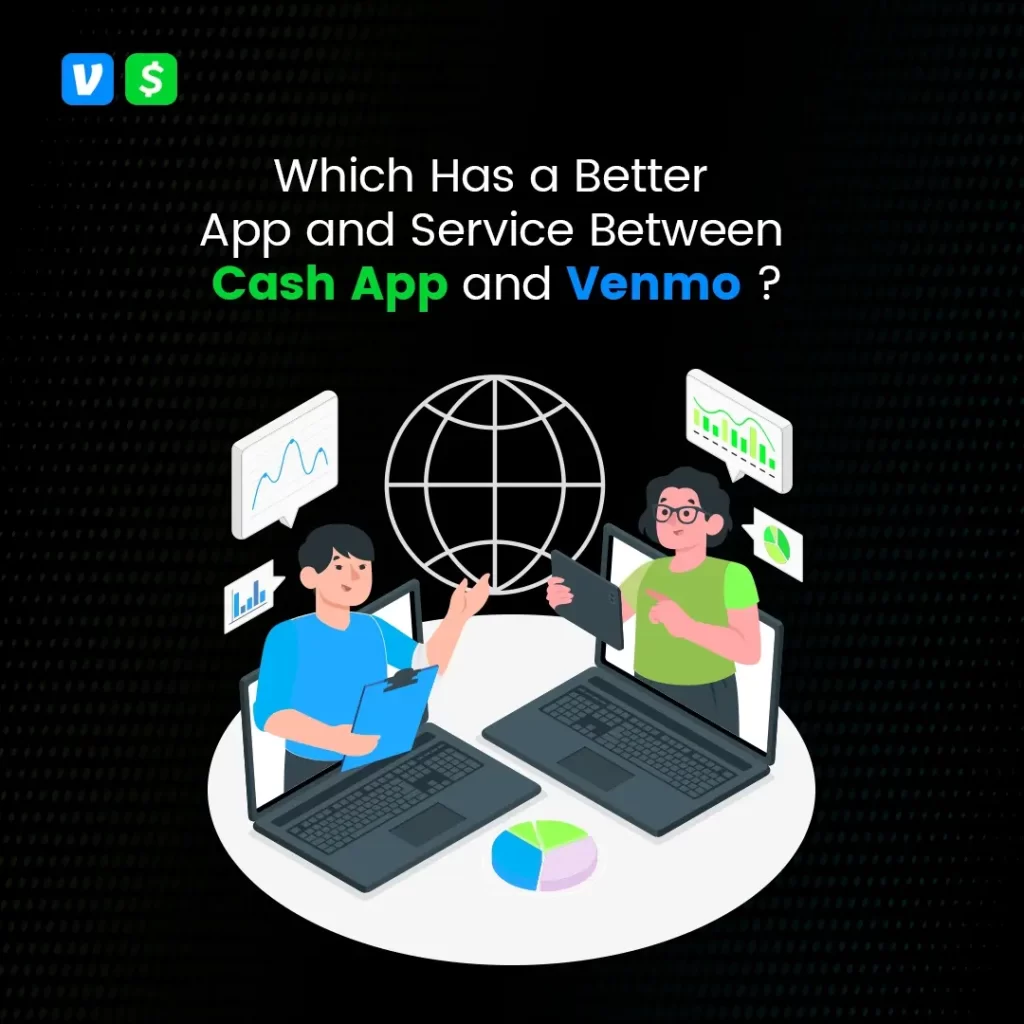
The App Store, Google Play, and a web browser offer Cash App and Venmo downloads.
Both are fantastic for use with friends and family, as we will discover in this section.
You may want to consider which option has the most salient characteristics, which we
list below.
- ® Comparative Advantages of Venmo and Cash App: Both provide very
- comparable services for sending and receiving money as peer-to-peer
- payment systems:
- ® Sending and receiving money is simple and quick, and you may pay
- people and businesses.
- ® No unforeseen costs Both can be downloaded without cost, and neither
- requires a monthly membership subscription. Both provide instant transfers
- for a cost if you need to send money to your associated bank right away.
- This normally takes between 1-3 days.
- ® Transfer restrictions: Sending and spending limitations apply to new and
- unverified users. Documentation and identity verification are required for the
- verification processes.
Venmo vs. Cash App: Differences?
International transactions, investing, and tax filing distinguish Cash App from Venmo. This section covers these differences:
Payment Options
The Cash App Cash Card works with Google Pay or Apple Pay. Venmo’s debit card
supports Google Pay but not Apple Pay. Venmo’s Amex Send feature lets you send
money with an American Express credit card without a fee.
Payments abroad
Cash App allows US-UK money transfers for free. Cash App uses the true mid-market exchange rate and charges no fees.
Compared to other international money transfer services, this is amazing. Venmo
cannot send money abroad.
Cash App’s brokerage service
Allows commission-free stock purchases. Cash App only supports Bitcoin. Investing and cryptocurrencies both involve losing money.
Credit card
Venmo and Cash App offer Visa debit cards with brand savings. Venmo’s Synchrony Bank Visa card stands out. You may earn points and pay no annual credit card fee with this Venmo-only card: 3% on your top spend category, 2% on your second, and 1% on all other qualified purchases.
Tax Returns
Businesses that sell on both apps will receive a Form 1099-K. Venmo is not for
personal tax reporting. Cash App handles personal tax filings and refunds. Free and
easy. Cash App sends Composite Form 1099 to individuals buying equities.
Which Has the Best Customer Reviews Between Cash App and Venmo?
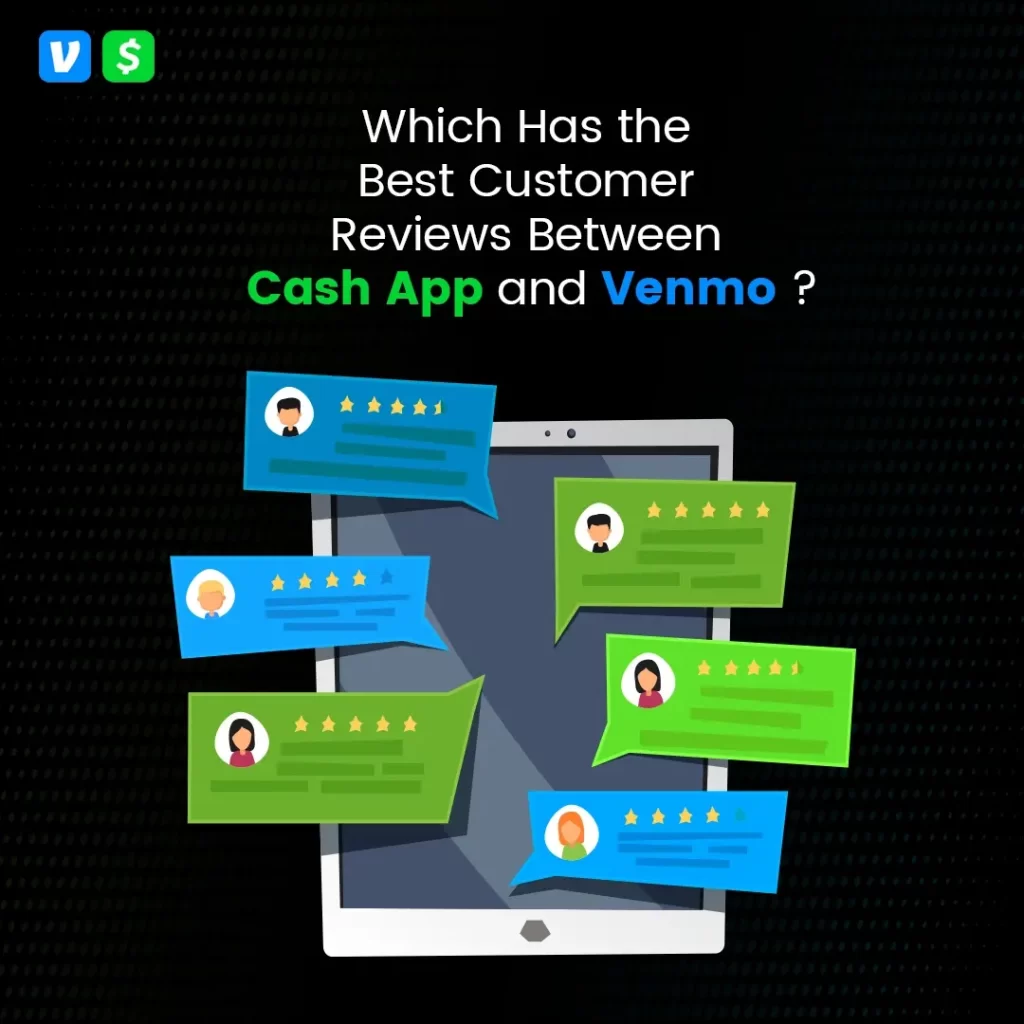
Cash App and Venmo are the two most popular US P2P networks, with millions of
reviews and tens of millions of customers.
In this regard, there isn’t a definite winner. On Google Play, Cash App received 4.7 out of 5 stars compared to Venmo’s 4.1. Venmo performed better in the App Store, receiving 4.9 stars as opposed to Cash App’s 4.8.
FAQ’S
What are the Cash App drawbacks?
Cash App’s first 30-day limit on sending and receiving $1,000 is a major drawback.
After that, raise your limit. However, you may need to use another app for significant transactions early on.
Why do people use Cash App instead of Venmo?
Cash App also lets you invest in stocks, buy bitcoin, and get direct transfers. Venmo is better for sending and receiving money.
Is it possible to use Venmo in other countries?
Venmo is not available in other countries currently.
Without a bank account, can you use Cash App?
Cash App works without a bank account, which is great. Phone number or email
address and zip code are all you need.
BOTTOM LINE
Overall, both services impress their customers. Both apps are good for receiving and sending money. Which app your friends use may determine your choice.
Venmo is better for features like a no-annual-fee credit card and more Bitcoin.
Cash App may be superior for stock purchases, free UK money transfers, and Apple Pay. Cash App’s free tax filing may also appeal.


